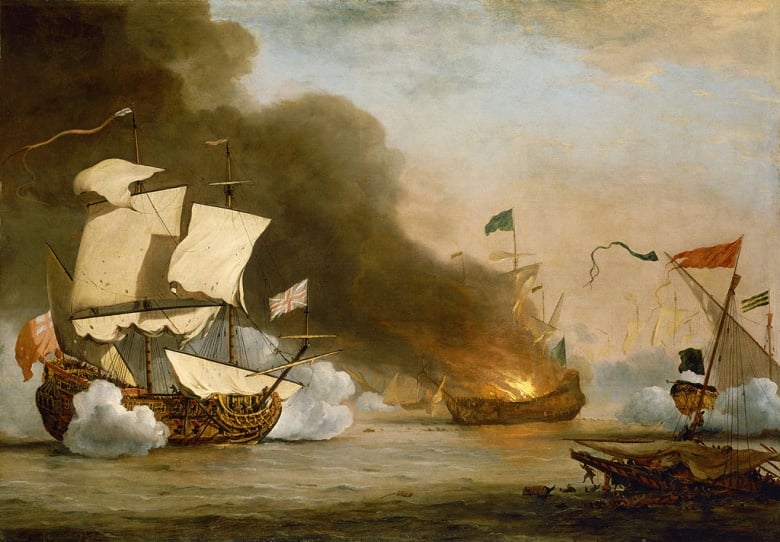When Britons were slaves in Africa
Between the beginning of the 16th Century to the end of the 18th, thousands of Britons were seized by Barbary corsairs - infamous pirates operating from the coast of North Africa. Despite the Royal Navy's projection of strength, particularly illustrated by famous lines of 'Rule Britannia' which proudly proclaim ' Britannia rules the waves, Britons never, never, never, shall be slaves', the Royal Navy was unable to protect British citizens, and across three centuries, African pirates captured and enslaved over a million Europeans.
Throughout the 16th Century, they prowled the Mediterranean, attacking unfortunate European shipping. However, at the onset of the 17th Century, they acquired more advanced square rigged ships, and began raiding the British coast. In 1631, the Irish town of Baltimore was sacked by slavers and abducted 100 people. In 1625 alone, 1,000 seamen were captured in waters off Plymouth.
The Royal Navy was in no fit state to prevent the pirate's pillaging. There were too few ships, and the nation was in an almost constant state of turmoil due to plague, Civil War, and conflict with other European powers left the treasury bare.
Captives were confronted by grim prospects. The best they could hope for was life as a domestic servant, but few were that fortunate. Young women were mainly bought by brothels, and men were often bought by the state for a life of hard labour and ill treatment.
The piracy was eventually resolved by a combination of military might and political will. From 1642, ransoming captives became national policy, and London began negotiating treaties with the Barbary states themselves. These measures were consolidated by a decisive display of force in the 17th century, when the Royal Navy was transformed into a formidable weapon of war. In 1665, a British fleet burnt the corsair fleet at anchor in Tunis, an then stormed Algiers to free hostages. In 1676, it destroyed another corsair fleet in Tripoli.
In 1713, Britain annexed Gibraltar and Port Mahon, allowing the Navy to launch new attacks and to provide British shipping with adequate protection. Eventually, the Barbary states signed non-aggression pacts with the British, which were now enforceable by the British naval presence in the Mediterranean. The menace of the corsairs were not entirely eliminated, although the Navy had subdued their threat by the mid 18th century.
 |
| Animation of a British Man O'War engaging a corsair fleet |
Comments
Post a Comment